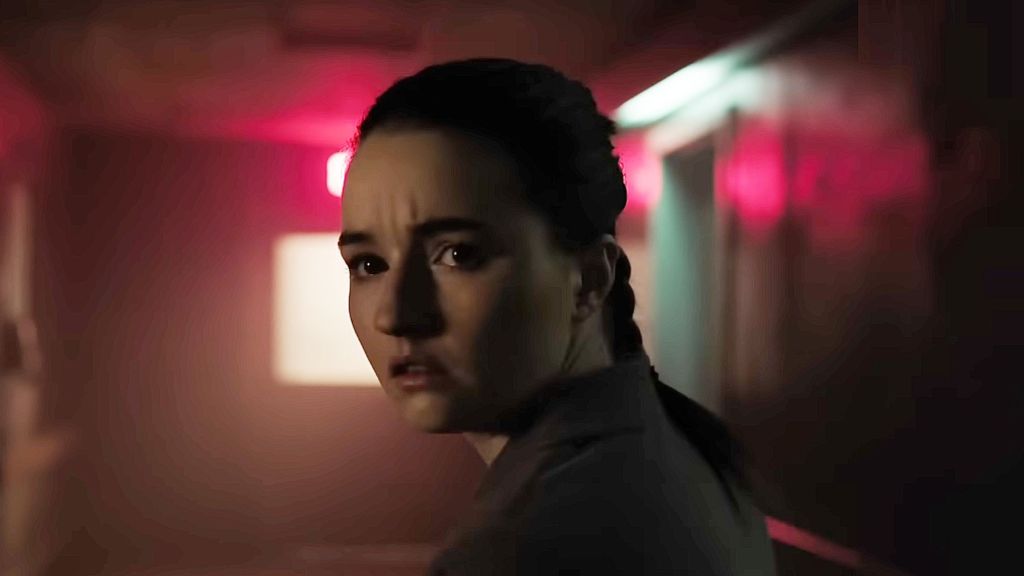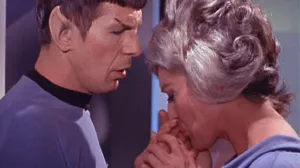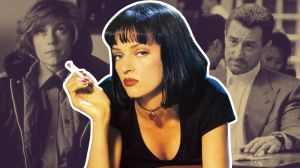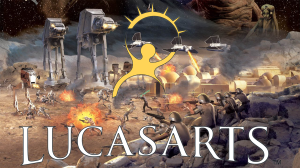The Last of Us Season 2 has delivered a devastating shock to those unaware of the video game’s storyline, and now, viewers will need to exercise patience in order to understand what the show is really about. HBO’s The Last of Us Season 2 is an adaptation of The Last of Us: Part II game, following Season 1’s coverage of the first game. Season 2 resumes the story five years after Joel (Pedro Pascal) takes Ellie (Bella Ramsey) away from the Fireflies and massacres the doctors who hoped to engineer a cure to the cordyceps fungal infection using her immunity. A rift has since formed between now-19-year-old Ellie and Joel, as the two reside in Jackson, Wyoming, with Joel’s brother Tommy (Gabriel Luna) and other friends. After a premiere primarily filled with exposition, The Last of Us Season 2 ripped fans’ hearts out in its second episode.
Videos by ComicBook.com
MASSIVE SPOILERS FOLLOW For The Last of Us Season 2, Episode 2!
In The Last of Us Season 2, Episode 2, “Through the Valley,” the town of Jackson faces a dangerous attack from a massive horde of infected while the patrol pairings of Joel and Dina (Isabela Merced) and Ellie and Jesse (Young Mazino) are away. A snowstorm and the surging wave of infected disturb things, and Joel discovers Abby (Kaitlyn Dever) alone and in need of rescue. Abby leads Joel and Dina back to her militia friends, who, under her direction, have been hunting Joel. Abby capitalizes on the opportunity by having Dina sedated, shooting Joel in the knee, and beating him with a golf club. Ellie suddenly bursts into the room, but she’s quickly contained and has to watch Abby deliver the fatal blow to Joel. This scene was hard to stomach for a lot of viewers, but those feeling betrayed by The Last of Us should take a moment to reflect before casting the show aside.
[RELATED: What Happens in The Last of Us Video Game After Joel’s Death (SPOILERS)]
Through Joel, Ellie & Abby, The Last of Us Proves That Perspective Is Everything
The first two episodes of The Last of Us Season 2 essentially function as a prelude to the rest of the story, as Joel’s death spurs Ellie’s quest to exact her revenge on Abby for murdering her father figure. Due to their affection for Joel, most viewers will despise Abby and strongly empathize with Ellie’s pursuit of vengeance; however, anyone with a keen eye for hypocrisy will notice that these three characters are far more alike than they are different when it comes to the motivation behind their violent deeds. So people who empathize with one, but not the other, have some serious thinking to do.
When Joel kills the Fireflies and takes off with Ellie upon learning that making a vaccine would end her life, he believes himself in the right and that he’s genuinely saving her. Many other characters in The Last of Us, as well as viewers of the show, might see Joel as a wrongdoer here, claiming that he selfishly ruined humanity’s only chance of survival. This isn’t revenge in the traditional sense, but Joel’s decision to kill dozens to save one girl largely stems from the devastation of losing his daughter near the beginning of the pandemic. As a result, Joel cannot give up his attachment to Ellie, and his anger at the thought of it propels his rampage. Joel likely would have killed the Fireflies in retaliation even if they had already gone through with Ellie’s procedure and rescuing her was not longer an option, prompting the same desire for bloodshed.
Early in Season 2, The Last of Us reveals that among the Fireflies that Joel slaughtered was Abby’s father. Thus, Abby takes it upon herself to find Joel and kill him in revenge, deeming it an act of justice. The reason behind Joel’s killing spree doesn’t matter to Abby because in her eyes, Joel is nothing more than a monster who took away someone she loved. Both Joel and Abby justify their violence with an eye-for-an-eye mentality. Moreover, Joel never considers the Fireflies’ family members they would leave behind before executing them. Similarly, Abby doesn’t regard those who care about Joel before ending his life.
The cycle repeats once again with Ellie, who resolves to exact her revenge on Abby for brutally killing Joel. Despite Ellie’s grief directly mirroring Abby’s, viewers are compelled to root for Ellie because her and Joel’s stories have been told at the forefront of the show for an entire season, inherently making them the more sympathetic party. Still, The Last of Us encourages viewers to use their heads and not rush to judgment of others. Gamers and show-watchers alike tend to immediately take a side without attempting to understand the power of perspective. The Last of Us‘ characters all see themselves as heroes and others as villains based on their own personal losses, without realizing that their homicidal tendencies are influenced by the universal struggle of trying to survive in a post-apocalyptic world. In the same way, whoever The Last of Us endears to audiences the most will be the character audiences defend. There are no objective heroes or villains in The Last of Us, and that’s what makes this story so engrossing.
Viewers Will Eventually Appreciate The Last of Us‘ Emphasis on Perspective

Viewers experiencing Joel’s death for the first time in The Last of Us TV show are understandably appalled by the event, but committing to hatred of a character should wait. Without getting into spoilers from the game, fans of the series need to know that The Last of Us will challenge the way they feel about Ellie vs. Abby. Audiences must consider that while they may resent one character now, they might see them differently by the end of the series. Joel, Ellie, and Abby endure immense tragedy that drives them to become vengeful, ruthless versions of themselves, and they all deserve the same amount of empathy from viewers. Surely, many can’t fathom standing in Abby’s shoes at this time, but The Last of Us will likely demonstrate its powerful lesson about perspective in due time.
Through the game’s (and now the show’s) story, The Last of Us showrunners Craig Mazin and Neil Druckmann attempt to illustrate the cycle of violence that stems from grief and life-or-death circumstances. In this cycle, everyone believes their actions are justified – but The Last of Us shows how humans are more alike than different, and how perpetuating the cycle of violence only serves to take life after life until no one is left standing. This thirst for revenge passes from Joel to Abby, and now to Ellie in The Last of Us Season 2, and those watching the show could quickly feel their sentiments shift, as each new episode releases.
Don’t believe it? Just remember how quickly fans perspective on Ellie shifted between the Season 2 premiere and Episode 2. Be (emotionally) ready for more.
New episodes of The Last of Us air on HBO and Max on Sundays.








